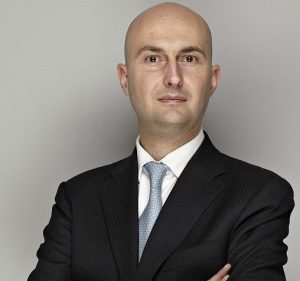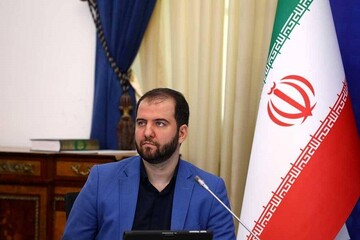Francesco Burelli* with 23 years of banking and advisory experience in digital banking and crypto currencies believes that crypto will see more regulation that will somehow address parts of its wild-west nature but it is going to take quite some time to rebuild the trust needed for the sector to take an upward trajectory once again.
We had an interview with him about the future of virtual currencies due to numerous thefts of virtual currencies.
– First of all, how do you predict the future of virtual money?
It is not just the numerous thefts but also the bankruptcies of exchanges and related crypto lenders that are raising questions about the future of crypto currencies with the consequence that crypto is currently experiencing low valuations, the so-called “crypto ice-age”, and it attracting ongoing regulatory scrutiny.
Common expectation is that there are further bankruptcies waiting to happen and this will prolong this period of low valuations and limited trust form the side of investors.
It will take time to recover from these events for trust to be rebuild to the point of triggering again a reinforcing loop of investment pushing and being attracted by, growing valuations. In my view crypto will stay a niche speculative asset class for the foreseeable future, even assuming that the “currency status” ambitions may every be achieved given volatility and intrinsic weakness of the crypto ecosystem.
Within the definition of virtual, or digital, currencies, there is more than crypto and it includes Central Bank Digital Currencies (CBDC) and Stable Coins. CBDC will continue to be subject to ongoing investment by central banks as a possible way to digitise fiat currency , streamline cross border settlement in addition to the potential that distributed ledger technology appear to hold in the context of complex financial products such as letters of credit and syndicated loans.
I would personaly see the business case and use case of stablecoin subject to the development od CBDCs with the development of the latter likely making the concept of stablecoin mostly redundant.

-Considering the theft and hacking of digital currencies during this period, do you think the future is still bright for digital currencies?
It is not just the thefts that are denting general investor trust in crypto currencies but also the bankruptcies that are happening out of the intrinsic risks and dependencies within the crypto ecosystem in addition to questionable management practices that took place in a regulatory vacuum and out the lack of proper management experience, and in some case of potential mismanagement, from the side of some ctypto entrepreneurs.
My personal expectation is that crypto will see more regulation that will somehow address parts of its wild-west nature but it is going to take quite some time to rebuild the trust needed for the sector to take an upward trajectory once again. Before then, the double whammy, of high energy cost and low valuation would be expected to drive more players out of business. In parallel to this there are now incumbents that are buying crypto assets and operation, with a long term view on the sector.
-Do you think that countries continue to turn to this market to improve their economy due to these threats? Is this market still profitable? In your opinion, what were the reasons for these thefts?
Criminals, of all types ranging from individuals, organised as well as institutional, are looking for appropriate illicitly funds from a variety of reasons, starting from personal gain, to fund other illicit actives such as drugs dealing to terrorism, down to being a way to sustain an ailing economy and pursue institutional agendas.
As long as crypto will have value and the risk-benefit of such thefts will stay positive, these types of assets will remain a target for theft. The challenging economic climate and the economic difficulties that crypo companies are experiencing are also going to make them less able to keep investing in the needed security technology, this will make the more vulnerable to crime. Ultimately crime is always looking for the weaker link in any economic chain.
-As it shows because of variety and decentralization of digital currencies, security issues became a major problem and there is no center and responsible to improve security problems of digital currencies. What is your opinion and solutions for this issue?
The immutable nature of Digstributed Ledger Technology is an intrinsic strength and provides a meaningful resilience fueature. The challenge is in the wider ecosystem, in the point of contact between the protocol and the wider economy. Theft-wise, the challenge is with the exchanges. The only “centralised” factor that can address and limit the vulnerabilities of the exchanges is regulation and supervision that would enforce standards, monitoring, controls and audits, and ultimately accountability that are needed to make them less vulnerable to internal and external crime.
-As North Korea day by day is developing its abilities to successful attacks and thefts of digital monies, do you think it can be used by more government and hackers?
There are agents of very different nature, government and non-governmental, that are keeping looking for way to pursue their own objectives. As technologies and capabilities keep evolving so will be the sophistication of hacking attacks. The fact that more governments may resort to such methods is a consequence of a wider set of domestic political and wider geopolitical circumstances. I would not exclude that more governments, in particular some of those involved in current explicit or latent, potential conflicts may resort to these methods.
( *About Francesco Burelli: Partner at Arkwright Consulting AG with over 23 years of banking and advisory experience in digital banking, open banking, retail, corporate and government payments, and cross-industry platforms and ecosystems. Before his consulting career, Francesco worked at Midland Bank / HSBC.
INSEAD alumnus, Co-author, together with Andrew Shipilov, Professor and Strategic Management area chair at INSEAD, of the Ecosystem Canvas and Ecosystem Canvas Timeline framework. INSEAD Alumni Association UAE Executive Committee member, Francesco complements his executive profession with industry research, publishing and think-tanks positions. Fellow of the London Institute of Banking & Finance, Francesco was awarded Fintech Startup Bootcamp’ Best Fintech Mentor of the Year Award 2015, ATM Industry Association’s Industry consultant of the Year 2014. )













